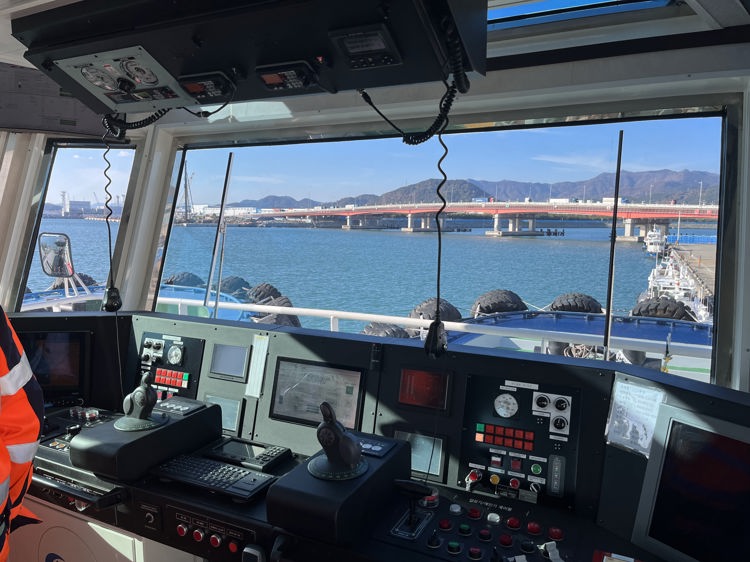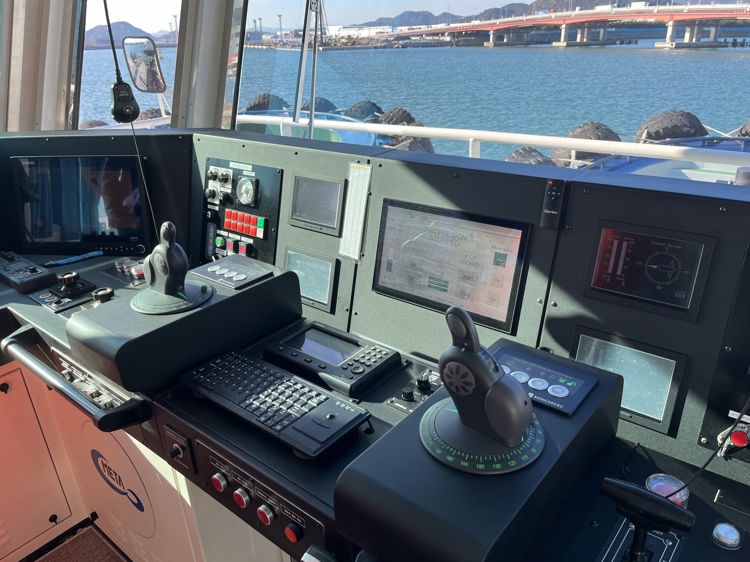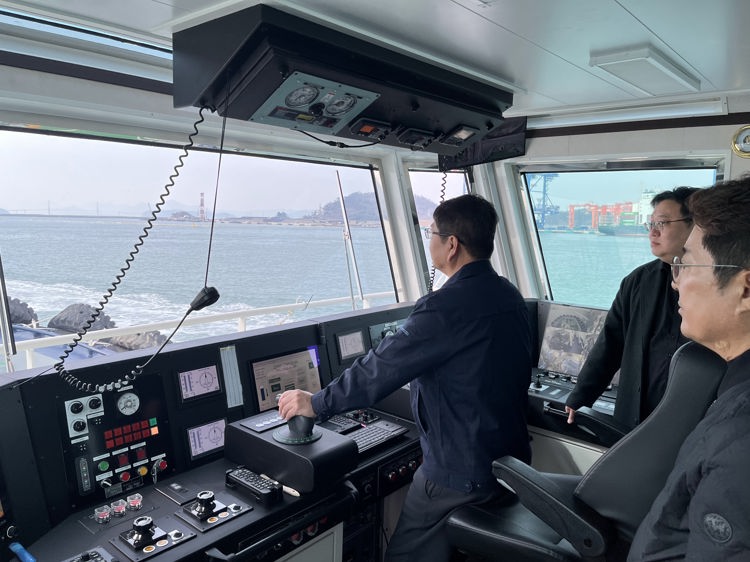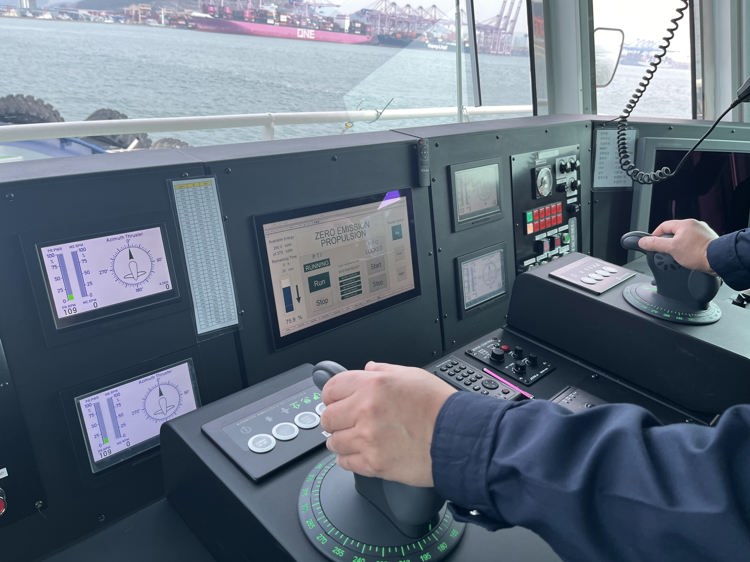A green solution for Busan Port
In a busy South Korean shipping hub known for its poor air quality, Kongsberg Maritime has supplied a hybrid-electric propulsion system for a new tug – another step in the right direction to protect the planet.
-
Craig TaylorSenior Manager PR & Communications
Busan Port, located on the southeastern coast of South Korea, is a major international shipping hub. The port handles a wide range of marine traffic, including container ships, bulk carriers, tankers and Ro-Ro vessels. In recent years, there has been a significant increase in the number of ultra-large container ships calling at the port, driven by the growth of global trade.
Kongsberg Maritime has supplied an innovative hybrid-electric propulsion system to a new tug, the Meta 7, which entered service in summer 2024. The delivery is the first of three separate projects for battery-hybrid tugs in South Korean ports, all focused on emissions reduction. In addition to Meta 7 in Busan, a tug from the Sunjin project has started commercial operation in Ulsan Port, and the World Marine project (in Gunsan Port) is being commissioned soon. All will feature Kongsberg Maritime hybrid systems and propulsion.

The port is known for its poor air quality, whicis largely due to emissions from ships and other sources. The use of electric tugboats such as the Meta 7 can help to mitigate this problem by reducing emissions of harmful pollutants.
Full electric operation and smoke reduction
When operating on electric power, the Meta 7 produces zero emissions. This is a significant advantage over traditional diesel-powered tugboats, which emit large amounts of pollutants. By reducing its reliance on diesel fuel, the Meta 7 can help improve air quality in Busan Port and contribute to a more sustainable maritime industry.




Hyeon Ho Hwang, Kongsberg Maritime’s Team Manager LNG & Energy, says: “The Meta 7 is designed to operate on full electric power for most of its tasks, including berthing and unberthing operations. This is made possible by the vessel's advanced battery system, which can store enough energy to power the electric motor for extended periods. Generally, the tug can operate for one hour for normal speed transit operations.”
By operating on full electric, the Meta 7 can dramatically reduce its emissions of smoke and other pollutants. “This is particularly important for tugboats, which often operate in confined spaces near residential areas. The reduction in smoke emissions will help improve air quality and reduce the impact of port operations on local communities. As the demand for cleaner and more efficient vessels continues to grow, it’s likely that we will see more electric tugboats and other electric marine vessels being introduced in the years to come. We currently have three projects for hybrid tugs in South Korea and look forward to monitoring future operations with our battery-hybrid system,” adds Kyu Sung Jung, Kongsberg Maritime’s Vice President Regional Sales – South Korea and Japan.

Pioneering step towards a greener future
The Meta 7 is a pioneering project that demonstrates the potential of electric propulsion in the maritime industry. By reducing emissions and improving air quality, the vessel can help create a more sustainable and environmentally friendly port environment.
Hong Jae Kim, Vice President of Meta Tug, says: “Since its deployment in Busan, the battery-hybrid tug Meta 7 has shown promising results. By utilising battery power for up to one hour during transit operations, we have successfully reduced emissions and improved air quality, contributing to a more sustainable and environmentally friendly port.
“While the diesel engine remains in use and automatic hybrid mode conversion is not yet applied, the PTI [power take-in] mode has proven beneficial by lowering fuel consumption and easing maintenance due to reduced operating time of rotating machinery. As the demand for cleaner and more efficient vessels grows, we anticipate seeing more electric tugboats like Meta 7 in the future.”




